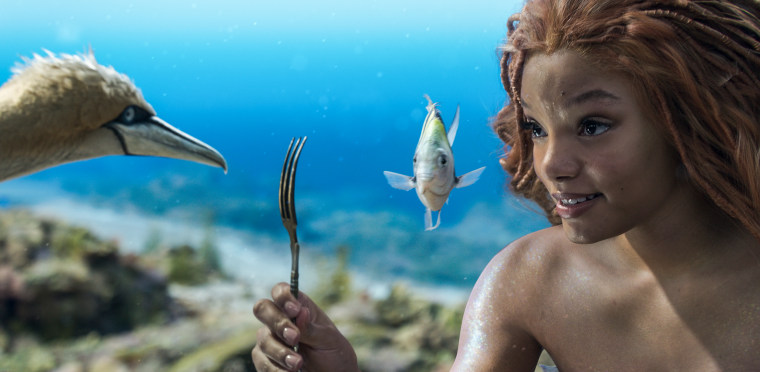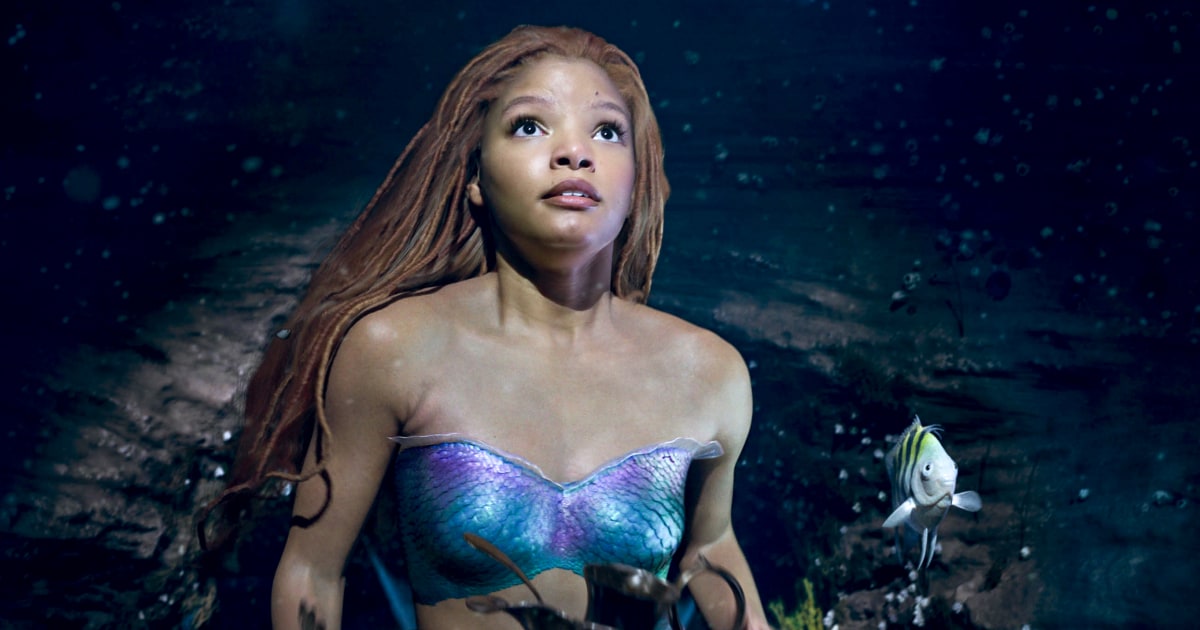When Halle Bailey was cast in the live-action remake of «The Little Mermaid,» some critics criticized the decision, claiming that Princess Ariel couldn’t be black.
But a professor who studies mermaid mythology and the current communities that portray them says that view couldn’t be further from the truth. Yes, mermaids are mythological creatures, but their African origins are real according to Jalondra Davis, an assistant professor of English at the University of California, Riverside. And some mermaids are black.
Part of Davis’ research places the origin of black mermaids during the Middle Passage, a time period in which Africans were enslaved and violently transported across the ocean to North America and the Caribbean. A common motif in mermaid legends is that enslaved people who fell overboard were transformed into aquatic creatures along with their offspring.
In African cosmologies, «people who got lost in the water could become water spirits,» Davis said. “The water spirits could lead people to the water and keep them alive.”
So, the story informs the myth. Still, according to Davis, because black popular culture can be overly focused on historical dramas, it is important that there be access for black stories that cover a variety of experiences, including fantasy, that is not tied to fact or reality. .
«The Little Mermaid» stars a black actor, but Bailey’s career is not the point.
“People often feel that when they are watching something with blacks or reading something with blacks they need to learn something,” Davis said. “We don’t have to act out history; We could be anything.
After a trailer for «The Little Mermaid» was released, in addition to the virulence, the videos went viral of young black women delighted to see a Disney princess with a complexion to match their own.
“It’s important because it can open up possibilities for the things that we can create and the possibilities for our children in terms of thinking about what they can do in the world and what they can create,” Davis said.
A mainstay of the black mermaid community is «aquatic diversity,» she said, and «teaching black kids to swim.» to ensure your safety. Among African-Americans, especially children, swimming competition rates are low, largely due to segregation-era policies that denied non-whites access to pools and beaches.

Davis began taking swimming lessons in 2020 when she connected with mermaids, a process she sees as restorative in the grueling relationship between black history and water.
There are also mermaid cosplayers, people who act like mermaids through costumes, usually wearing a dressed monofin, which places both feet together in a single fin, to mimic the mermaid’s tail before swimming underwater. However, Davis cautioned that swimming in these conditions can be physically demanding.
Others are drawn to mermaid cosplay because of its gender inclusiveness: having a mermaid tail can be a way of saying «who cares» about this last region of the body.
“The water becomes a shelter,” he said. «Water becomes a site of possibility for another life.»
Similar to the fictional African utopia Wakanda in «Black Panther,» Davis said the black mermaid tradition is a «way of looking at the kind of worlds and societies that Africans could have created without any interruption.»
“The water belongs to us,” Davis said.

